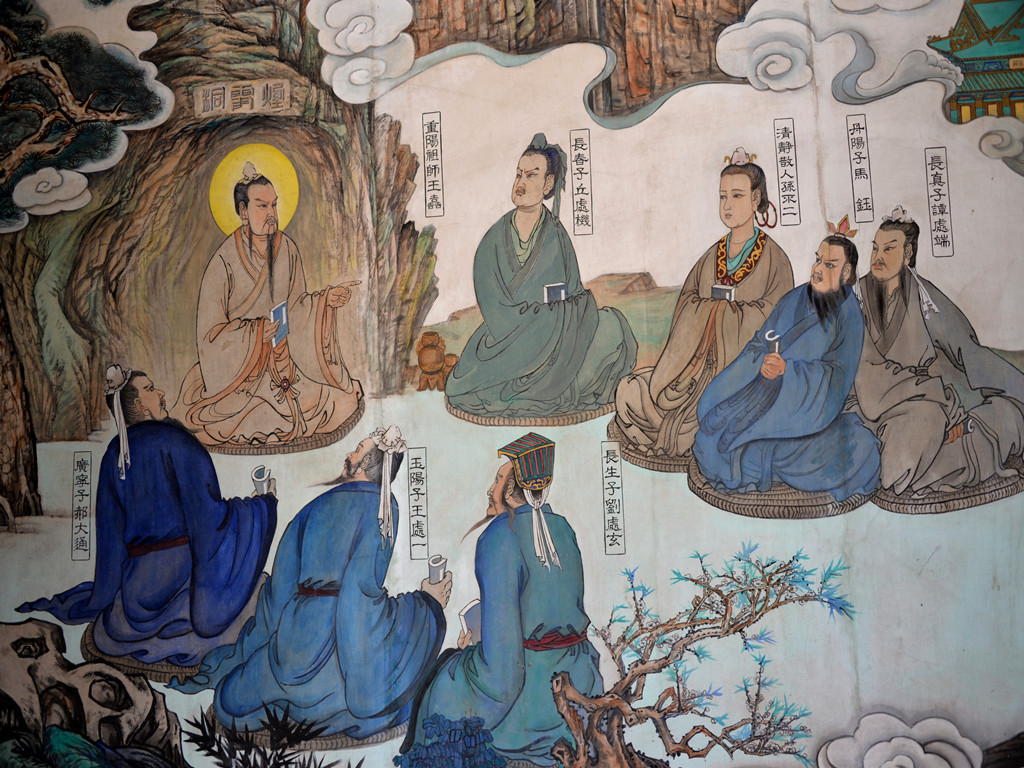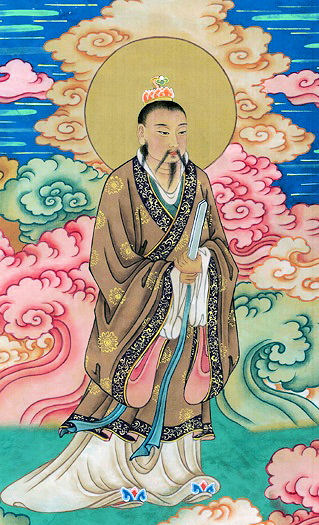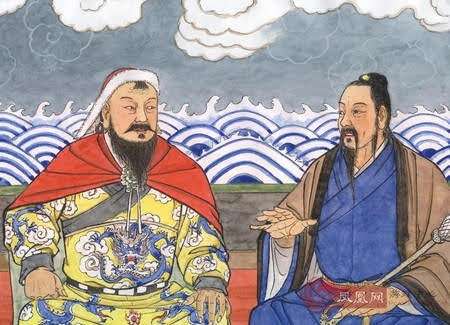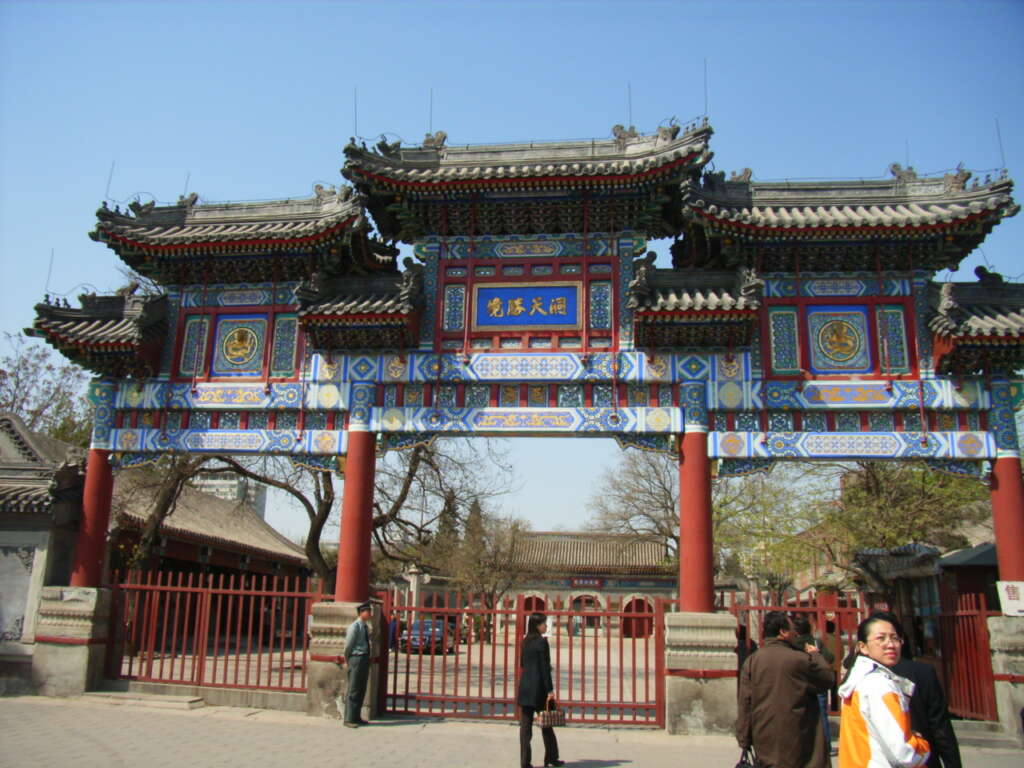AS CHINESE AND other diplomats urge a halt to brutal wars raging in Israel and elsewhere today, this may be a good time to remember one of the most extraordinary meetings between a peacemaker and a ruthless warrior.
The two characters in this story are Qiu Chuji (丘處機), a Taoist master, and Genghis Khan, the bloodthirsty military leader who created the largest contiguous empire in world history—a record still unbeaten today.
Unbeatable in battle, the Great Khan could snatch physical items whenever he wanted. But wisdom was a different matter. Genghis Khan wanted answers to the big questions of life, and for that he needed the wisest person on earth. He was advised that Taoist master Qiu Chuji was the man with the answers.
Qiu was the disciple of Wang Chongyang, the founder of the Quanzhen School, a historically important center of knowledge.

In 1219, Genghis Khan wrote a letter to Qiu Chuji, expressed his admiration and respect, and called for a meeting.
Qiu Chuji, aged 73, selected eighteen disciples with him and set out from Shandong in 1220. Wars were raging in many places, and the ancient Silk Road had been cut off. So they had to travel north and then west, following the Greater Khingan Mountains into modern-day Inner Mongolia, crossing the Mongolian Plateau into today’s eastern Iran. They finally met the Great Khan on the southern bank of the Amu Darya in 1222. This was near the area now known as the Hindu Kush.

After thanking Qiu Chuji for making a long and arduous journey, the Khan asked the two biggest questions of the time. The first was whether the Philosopher’s Stone existed – the mythical substance that could turn base metal into stone.
The Taoist master said it did not exist.
Khan moved onto the second big issue: the existence or otherwise of a medicine that could enable him to life forever.
“Is there any ‘potion of immortality’?” he asked.
“No, sire,” the monk said.
The Khan was undoubtedly disappointed, but he liked honest people. He asked:
“Then do you have a solution to prolong longevity?”
“Yes,” said Qiu. “It is to respect and love your people.”
Khan decided that he already did that. “I live and eat with my people on the steppe, lead from the front in every battle, and treat my soldiers as my bloody brothers,” he said. “Is that not enough?”
“Not enough,” said the Taoist master. “You should forbid the massacre of people, and never be bloodthirsty, sire.”
It was a brave demand to make—but Genghis Khan was not angry. In fact, he seemed pleased by the conversation, which was recorded in the book Xuanfeng qinghui lu (玄風慶會錄).

The Taoist continued to speak the truth, rather than agree with everything the warrior said. When offered horse milk wine at the meal, Qiu declined, and the Khan replaced his drink with grape juice and watermelon juice.
When a bloody battle began in the region that is now Afghanistan, Qiu Chuqi was openly horrified, and the Khan allowed him to leave the battlefield and travel to peaceful Samarkand.
In 1227, during the battle with Western Xia, Genghis Khan reached the end of his life. By the time of his death, the land overrun by the Mongol army was four times the size of Alexandria the Great’s conquered lands, and twice the size of the fabled Roman Empire.
Some historians say that the advice of Qiu Chuji can be at least partly credited for the more peaceful and prosperous era that followed 33 years later, overseen by another ruler, known as Kublai Khan.
The priest was used as a character in the 1959 hit novel Legend of the Condor Heroes (pictured) by Hong Kong’s Jin Rong, although in that tale he is a tough fighter rather than a source of quiet wisdom.

Qiu, also known by his priestly name of Master Changchun, died in Beijing on 23 July 1227, was given lands for the foundation of the Taoist Monastery of the White Clouds (pictured) which still exists today.

The wisdom of Taoist master Qiu remains true today. The wise leader is the one who does not engage in massacres and is never thirsty for the blood of enemies. It is a lesson that modern leaders need to learn.
Image at the top by fridayeveryday.

